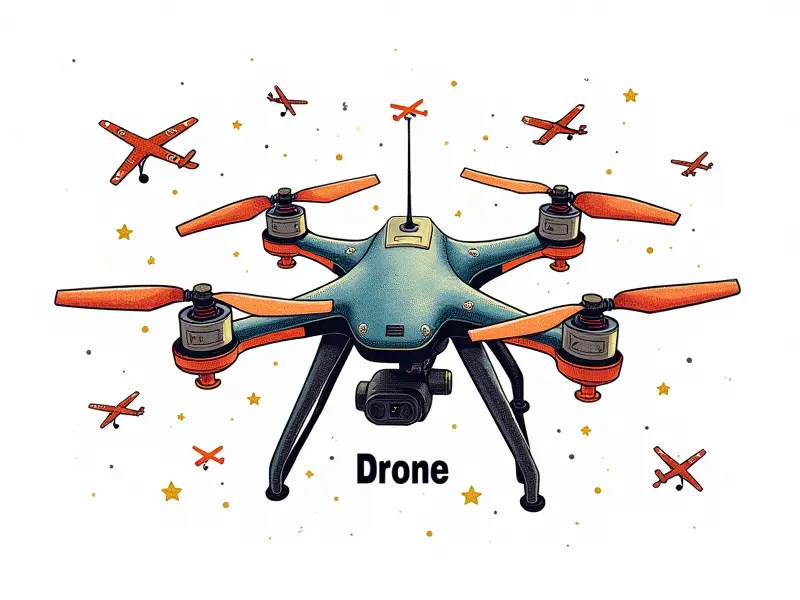Are RC planes dangerous?

Are RC Planes Safe to Fly?
The question of whether remote control (RC) planes are dangerous is a common concern among both novice and experienced pilots. While RC aircraft can be thrilling and rewarding, they do come with certain risks that need to be managed properly. This article aims to explore the safety aspects of flying RC planes, providing valuable insights into how enthusiasts can enjoy this hobby while minimizing potential dangers.
Risks of Flying RC Aircraft
Flying RC aircraft involves several inherent risks. These include:
- Crashes and Collisions: The most obvious risk is the possibility of crashing your plane, which can result in damage to the aircraft or injury if it falls from a significant height.
- Property Damage: RC planes can cause property damage if they collide with buildings, vehicles, or other structures.
- Personal Injury: Flying near people increases the risk of accidents that could lead to injury.
Safety Tips for RC Plane Enthusiasts
To ensure a safe flying experience, it's crucial to follow these tips:
- Choose Suitable Locations: Always fly in designated areas such as parks or fields that are away from public spaces and buildings.
- Use Protective Gear: Wear protective eyewear and helmets when flying RC planes, especially if you're piloting larger models.
- Learn Basic Skills: Take time to learn the basics of flight control before attempting more complex maneuvers.
Common Hazards in RC Plane Flying
Flying RC planes can expose pilots to various hazards, including:
- Electrical Shocks: Improper handling or maintenance of electronic components can lead to electrical shocks.
- Battery Fires: Overcharging or mishandling lithium polymer (LiPo) batteries can cause fires.
- Airspace Violations: Flying in restricted airspace without proper clearance is illegal and dangerous.
RC Plane Accidents: Causes & Prevention
The causes of RC plane accidents are varied but often preventable. Common causes include pilot error, equipment failure, and environmental factors. To mitigate these risks:
- Maintain Equipment: Regularly check your aircraft for wear and tear.
- Avoid Overconfidence: Even experienced pilots should remain vigilant and cautious.
- Weather Awareness: Avoid flying in adverse weather conditions such as high winds or heavy rain.
Understanding Risks of RC Aircraft
To fully understand the risks associated with RC aircraft, it's essential to recognize that these devices operate under similar principles to full-sized planes. This means they can be affected by wind currents, turbulence, and other environmental factors that pose a risk.
Ensuring Safety with RC Planes
Safety is paramount when flying RC planes. Here are some steps to ensure your safety:
- Follow Regulations: Adhere to local regulations regarding the operation of RC aircraft.
- Use Quality Equipment: Invest in high-quality components and batteries that meet safety standards.
- Stay Informed: Keep up-to-date with the latest safety guidelines and best practices.
Safe Practices for RC Plane Pilots
Implementing safe practices is crucial to enjoying your hobby without incident. This includes:
- Pre-flight Checks: Conduct thorough pre-flight inspections of your aircraft and equipment.
- Emergency Procedures: Know what to do in case of an emergency, such as a sudden power loss or motor failure.
- Communication: Maintain open communication with other pilots at the flying field to avoid collisions.
Dangers of RC Airplanes Explained
The dangers associated with RC airplanes are real but manageable. By understanding these risks and taking proactive measures, you can significantly reduce the likelihood of accidents:
- Crash Risks: Always be prepared for a crash landing by selecting safe areas to fly.
- Battery Hazards: Store batteries properly and follow manufacturer guidelines for charging and handling.
- Airspace Violations: Be aware of no-fly zones and obtain necessary permits if required.
Avoiding Danger with RC Planes
To avoid danger when flying RC planes, it's important to:
- Practice Caution: Exercise caution at all times and never take unnecessary risks.
- Seek Training: Consider taking a training course or workshop to improve your skills and knowledge.
- Stay Informed: Stay informed about the latest safety guidelines and technological advancements in RC flying.
RC Plane Hazards Explained
The hazards associated with RC planes are multifaceted, ranging from mechanical issues to environmental factors. Understanding these hazards is key to preventing accidents:
- Mechanical Issues: Regular maintenance can help prevent mechanical failures that could lead to crashes.
- Environmental Factors: Be aware of weather conditions and avoid flying in adverse environments.
- Human Error: Pilots should remain vigilant and avoid complacency, as human error is a leading cause of accidents.
Conclusion
Flying RC planes can be an incredibly rewarding hobby when approached with the right mindset and precautions. By understanding the risks involved and implementing safety measures, enthusiasts can enjoy this thrilling pastime without compromising their well-being or that of others. Remember to always prioritize safety, follow regulations, and stay informed about best practices in the field.

